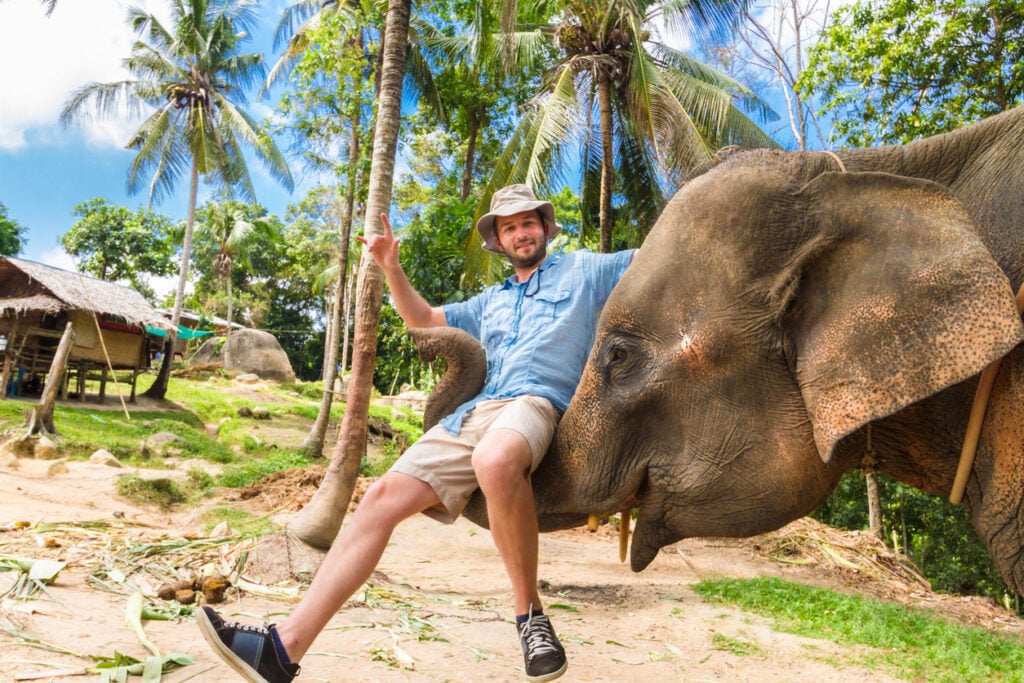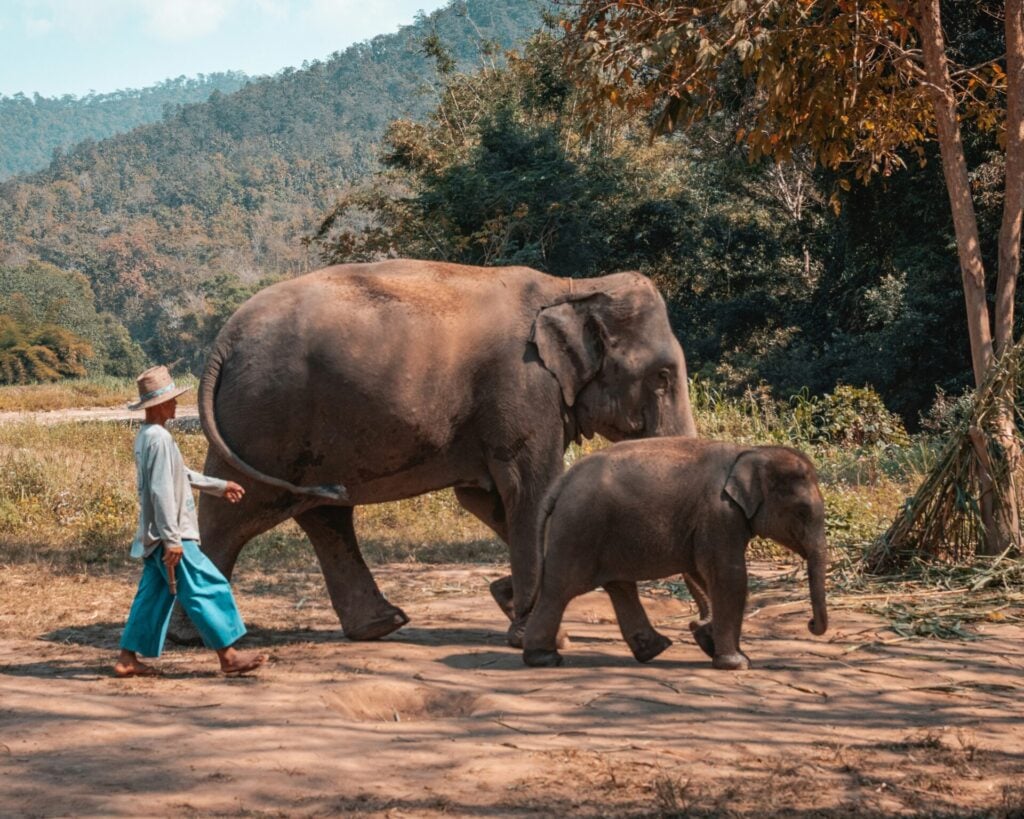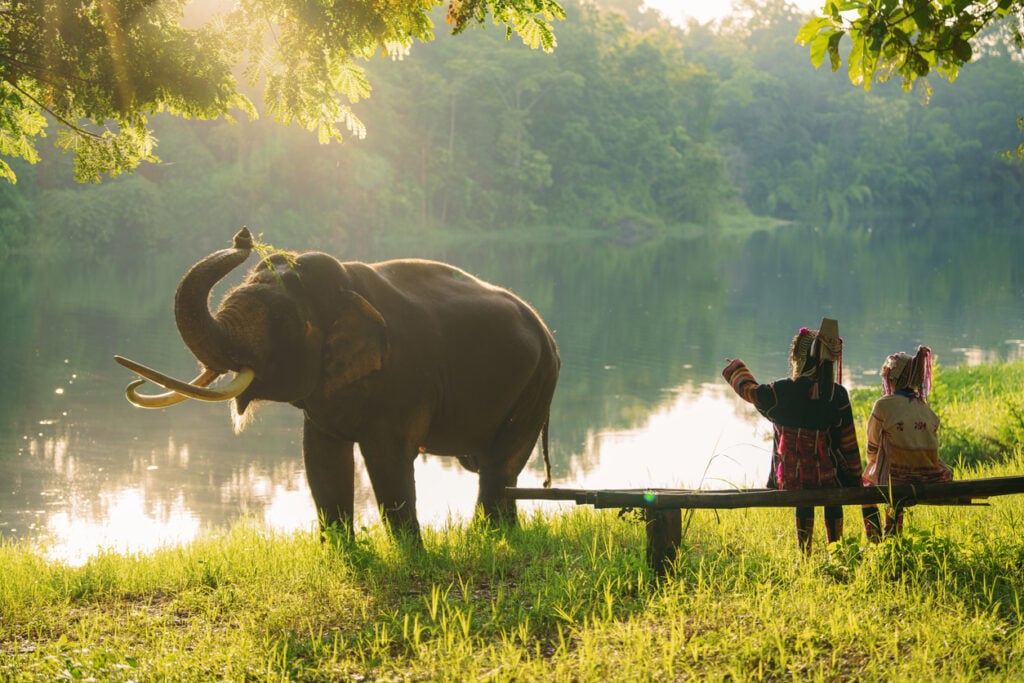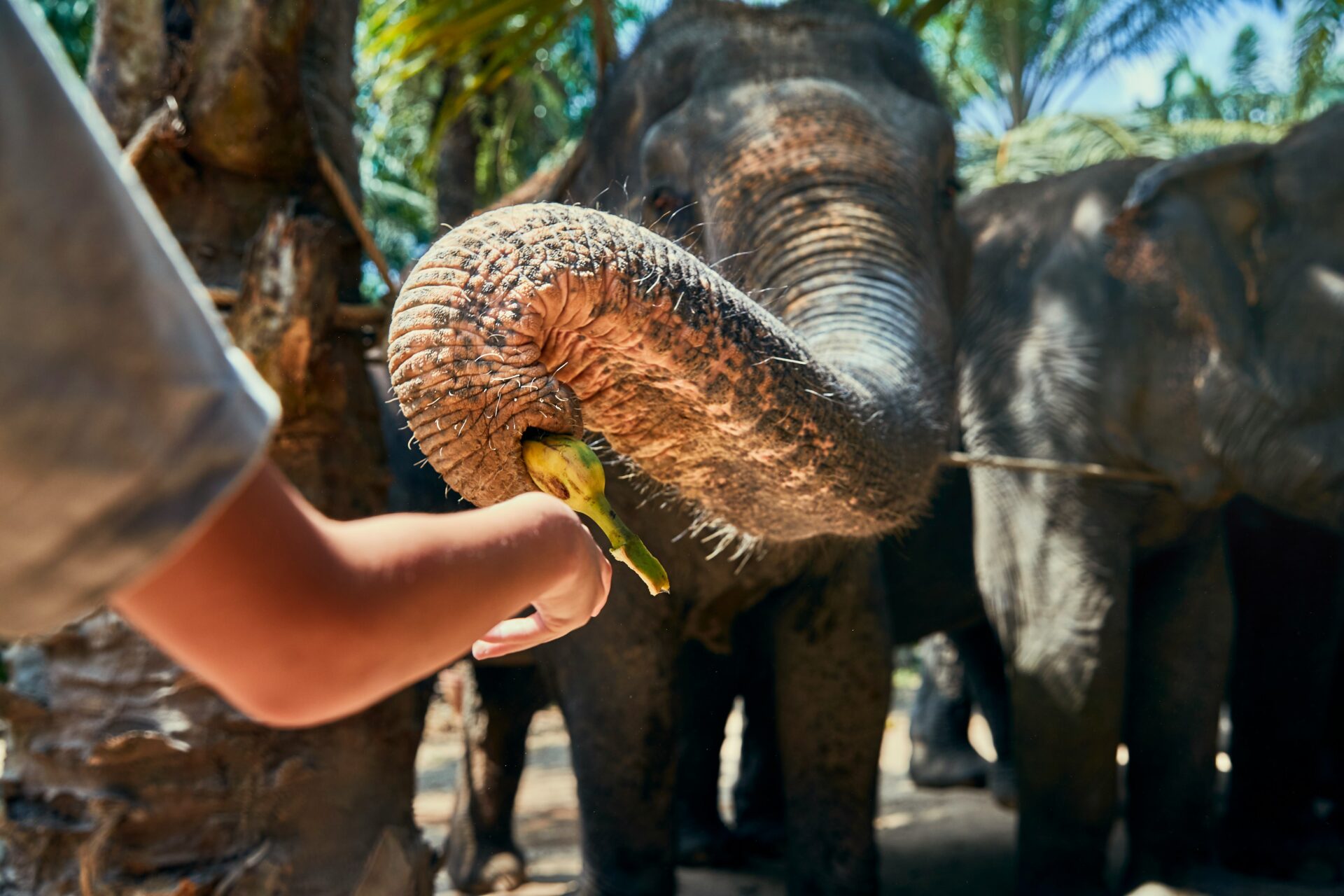Elephant tourism is often at the top of every Thailand traveller’s bucket list. But not all encounters are created equal. While some exploit these gentle giants for rides and performances, others focus on conservation and welfare. But for travellers, knowing the difference as to whether your visit supports rather than exploits, can be hard to get right.
For decades, elephant tourism looked very different to today: circus-style tricks, long treks with heavy howdahs, elephants chained for hours out of sight. While the industry has certainly improved in recent years, some ‘sanctuaries’ continue unsustainable, even abusive, practices.

John Roberts, Group Director of Sustainability at Minor Hotels and based at the Anantara Golden Triangle Elephant Camp & Resort in Northern Thailand has worked with elephants since 1999. He’s seen first-hand how the industry has changed and the challenges that remain.
Launched in 2003 in partnership with the Golden Triangle Asian Elephant Foundation (GTAEF), the resort was originally created to give a new life to elephants forced into street begging. Today, it offers a safe jungle home to around 20 elephants alongside their lifelong mahouts and families while educating visitors on the importance of ethical elephant encounters.
Roberts says Thailand’s wild elephant population appears to be slowly increasing, though he’s cautious about calling it a straightforward success story. ‘The general population of wild elephants in Thailand appears to have increased,’ he tells The Ethicalist. ‘There is some argument that everybody has a camera in their pocket now, so a lot more gets reported. But it does appear with the counts that the National Parks departments are doing, that it’s increasing.’
The biggest threat: human–elephant conflict
As numbers grow, so do tensions with farming communities. ‘Farmers don’t like losing their crops, and when farmers react aggressively to push the elephants back in, eventually that leads to aggression from the elephants,’ John explains. ‘Sometimes as soon as they see a human, they’ll pre-empt with aggression. The major work is how to deescalate that.’
New technology, like GPS collars, is now being trialled in Thailand. It creates virtual ‘geofences’ that send alerts when elephants stray near villages, giving farmers time to act before conflict erupts.
Unlike in Africa, poaching isn’t the defining threat in Thailand. ‘Poaching isn’t a big thing here,’ John notes. ‘There have been records of a few elephants shot in the last 10 years for their ivory, yes, but it’s not the major driver. It’s helped by the fact that females here don’t have tusks, and a large proportion of males don’t either.’
Another historic cruelty, elephants forced to beg in city streets, has also been stamped out. ‘Streets and cities is thankfully gone,’ Roberts says. ‘If elephants go out there, it goes on social media, the police act. Unlike the old days, it’s not tolerated.’
The real dilemma: captivity
The biggest challenge remains Thailand’s 3,800 captive elephants, which cannot be released into the wild. ‘Those elephants have to do something because they have to eat,’ John explains. ‘You can’t put them back in the wild, so you have to find food for them, and that costs money. At the moment, tourism is the main way to provide an income for the people who look after them and for the elephants themselves.’

This, he says, makes it difficult to draw neat lines around what counts as ethical. ‘It’s all on a sliding scale… The big issue is having 3,800 elephants in captivity and having to find food for them and income for the people who look after them. Where do you draw the line as to what is… unethical? What I’m trying not to do is condemn all the very nice camps out there that are doing their best for elephants, even if they allow more interaction than we do. It’s more about what an elephant is forced to do.’
At Anantara Golden Triangle, the camp avoids riding and group bathing. Breeding is also off the table. ‘We don’t breed,’ Roberts says firmly. ‘In my opinion, there are too many elephants in captivity. We don’t need more. We shouldn’t be creating more until we have a good answer for the number that we already have.’
Elephant Tourism: What Not To Do
Skip rides and performances: Even if marketed as ‘gentle,’ the reality is that most elephants endure stress and training techniques that compromise their wellbeing.
Be cautious with close contact: Hugging, bathing, or even letting elephants poke their trunks into your villa might look magical online, but it can mask daily restrictions and stress. If activities prioritise guest experience over elephant choice, it’s a red flag.
Don’t trust appearances alone: An elephant grazing in a lush field may still spend 18 hours chained when tourists leave. Welfare cannot be judged in snapshots.

Elephant Tourism: What To Look For
Independent certification: The gold standard is third-party welfare auditing by groups like the Asian Captive Elephant Standards or Global Spirit. Camps that welcome these audits signal transparency and accountability.
Quality over quantity: Ethical sanctuaries limit guest numbers and elephant workload, ensuring each animal has rest, space, and natural behaviours.
Community benefit: The best models support mahouts and local families, not just the resort, ensuring elephants remain part of living cultural traditions.









